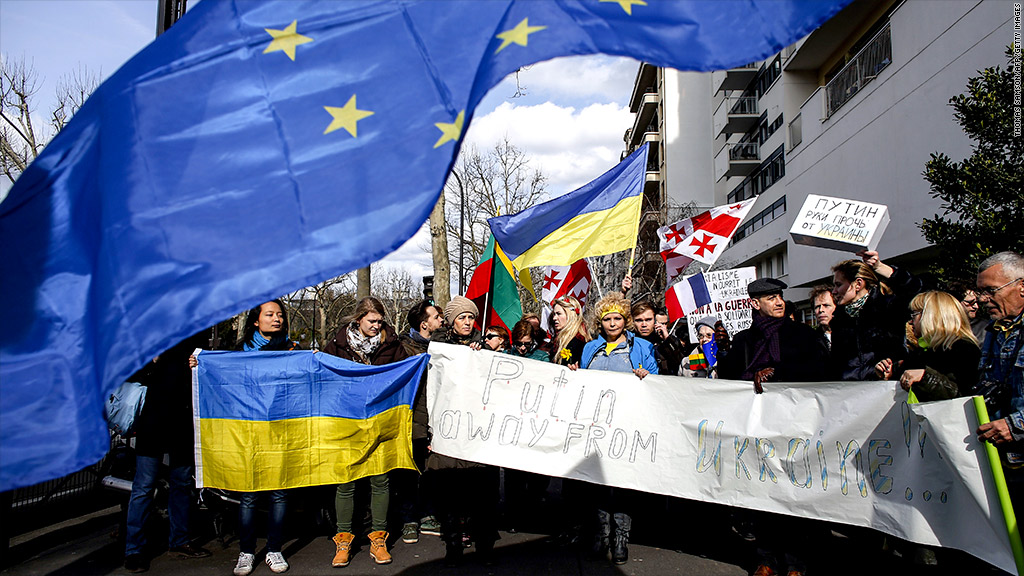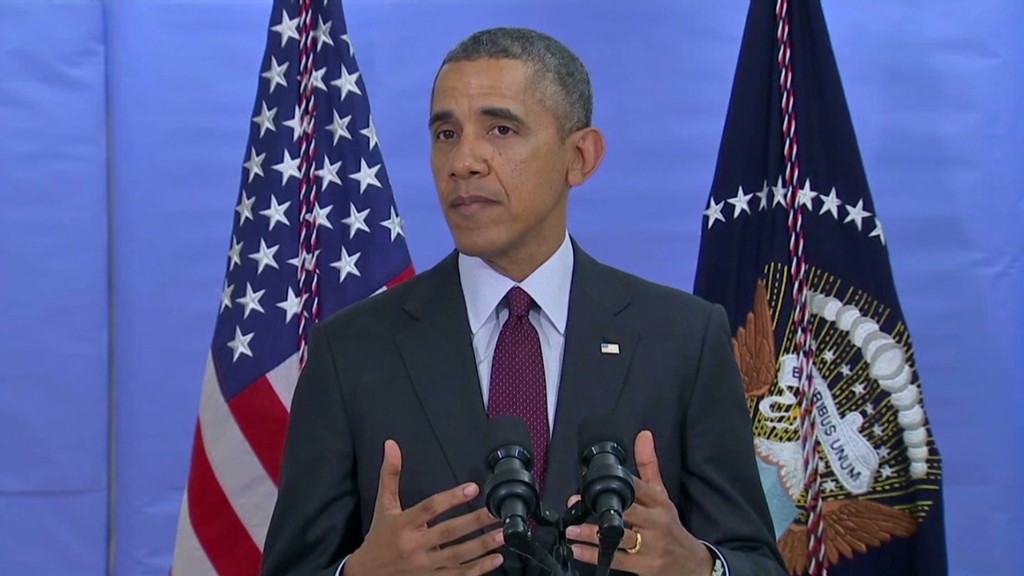
The European Union announced Wednesday it will offer Ukraine at least $15 billion (€11 billion) in aid as the country struggles with dwindling cash and a military standoff with Russia.
Jose Manuel Barroso, president of the European Commission, the EU's executive body, said the package would provide Ukraine with assistance over the next few years. The aim is to help the country stabilize its economy and finances and work toward political and economic reforms.
Experts have been predicting Ukraine could default this month on its billions of dollars in debts. The country owes roughly $13 billion in debt this year.
Many of the country's debts are denominated in U.S. dollars, which were becoming increasingly difficult to pay back as the value of the country's currency fell sharply this year.
On Wednesday, Ukraine said it would not be able to pay its February natural gas bill to the energy company Gazprom. Ukraine owes the Russian firm nearly $2 billion.
Meanwhile, a report from Interfax said the Ukrainian finance minister is hoping to restructure the country's foreign debt.
Related: 5 reasons Ukraine matters to the world economy
The International Monetary Fund is conducting a review in Ukraine this week to see if it will provide further financial assistance.
Ukrainian leaders said last month the country needed $35 billion in aid.
The U.S. government has also stepped in to help, offering $1 billion in loan guarantees.

International authorities have long been calling for Ukraine to reform its economy, with the IMF noting that past reforms were not fully implemented.
The country offers large subsidies to residents on natural gas, a populist move that has wreaked havoc on national finances.
Ukraine's central bank also spent money bolstering the currency -- the hryvnia -- which pushed down its foreign reserves to worrying levels.
The country also has a reputation for rampant corruption, with Transparency International ranking Ukraine among the most corrupt countries in the world.
Related: Why Europe will balk at Russian sanctions
The crisis in Ukraine kicked off late last year when the now-ousted president Viktor Yanukovych suspended talks on a planned European Union trade deal and instead formed closer ties with Russia.
At the time, Russia offered Ukraine about the same level in aid that the EU is now pledging to the beleaguered nation.
The move toward closer ties to Russia backfired as pro-Western protesters crowded onto the streets in Ukraine, eventually leading to an uprising that caused Yanukovych to flee.
This upset pro-Russia supporters, especially in Ukraine's Crimea region, which is home to many ethnic Russians.
Russia mobilized troops in and around Ukraine, notably in Crimea. Russian President Vladimir Putin described the troops in Crimea as "self-defense teams."
On Tuesday, Putin said that if Russian-speaking citizens in the east of Ukraine ask for help, Russia has the right "to take all measures to protect the rights of those people." He repeatedly cast any intervention as a humanitarian mission, though the international community is calling it an "act of aggression."


